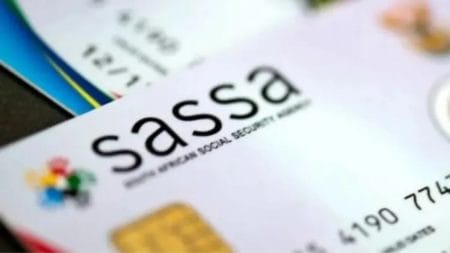Education is essential, but for many families, paying school fees can be a challenge. If you’re struggling to afford school fees for your child, don’t lose hope. There are several options available in South Africa to help ease the burden.
From government assistance to private sponsorships, this guide will help you find ways to get financial aid and ensure that your child gets the education they deserve.
1. Apply for a School Fee Exemption
What is a School Fee Exemption?
A school fee exemption is when a public school allows a parent or guardian to either pay a reduced fee or be completely exempt from paying school fees.
Who Qualifies?
According to the South African Schools Act, if you cannot afford school fees, you can apply for a fee exemption. The exemption categories include:
- Full exemption – If your combined household income is less than ten times the annual school fee.
- Partial exemption – If your combined household income is between ten and thirty times the annual school fee.
- Conditional exemption – If you do not qualify for the full or partial exemption but still have financial hardships.
How to Apply
- Request an application form from the school principal.
- Fill in the form and attach supporting documents such as proof of income (salary slip, SASSA grant statement, or unemployment confirmation).
- Submit the application to the school’s governing body.
- Wait for a response—schools must process applications within 30 days.
If your application is denied, you can appeal to the Head of the Department of Education in your province.
Learn More: How to Apply for School Fee Exemptions in South Africa (2025)
2. Apply for the SASSA Child Support Grant
What is the Child Support Grant?
The South African Social Security Agency (SASSA) provides a Child Support Grant to help low-income families afford school expenses, including fees, uniforms, and stationery.
Who Qualifies?
- The caregiver must be a South African citizen or permanent resident.
- The child must be under 18 years old.
- The total income of the caregiver must be below a set threshold (less than R4,000 per month for a single caregiver or R8,000 for married caregivers).
How to Apply
- Visit your nearest SASSA office.
- Bring the following documents:
- Your ID or birth certificate (and your child’s).
- Proof of income (or an affidavit if unemployed).
- Proof of residence.
- Fill out the application form and submit it.
- If approved, you will receive a monthly grant to help with school costs.
3. Apply for NSFAS If Your Child is Going to University
If your child is in Grade 12 and planning to attend university or college, they can apply for the National Student Financial Aid Scheme (NSFAS). NSFAS covers tuition, accommodation, and sometimes even provides a stipend for food and transport.
Who Qualifies?
- South African citizens or permanent residents.
- Household income must be below R350,000 per year (or R600,000 for students with disabilities).
- The student must be accepted into a public university or TVET college.
How to Apply
- Go to the NSFAS website (www.nsfas.org.za).
- Register an account and complete the online application.
- Upload supporting documents, including:
- ID documents (yours and your child’s).
- Proof of income or SASSA grant details.
- Academic records.
- Submit the application and wait for feedback.
4. Look for Scholarships and Bursaries
Scholarships and bursaries are another way to get school fees covered, especially for high school and tertiary education.
Where to Find Scholarships?
- Department of Basic Education Bursaries – Check with your local Department of Education office for available bursaries.
- Corporate Scholarships – Many companies like Sasol, Eskom, and Shoprite offer bursaries for high-achieving students.
- NGOs and Religious Groups – Organizations such as the Allan Gray Orbis Foundation and Motsepe Foundation provide scholarships to financially struggling families.
How to Apply
Each bursary has its own requirements, but generally, you will need:
- A motivational letter explaining why you need financial assistance.
- Your child’s latest school report (good academic performance helps).
- Proof of household income.
5. Approach Your Child’s School for Payment Plans
If you don’t qualify for an exemption but still struggle to pay fees, ask the school about installment plans. Many schools allow parents to pay fees in smaller amounts instead of one large sum.
What You Need to Do
- Speak to the school principal or governing body.
- Provide proof of financial hardship.
- Negotiate a payment schedule that suits your budget.
6. Get Help from Churches and Community Organizations
Churches, mosques, and community groups often help families in need by covering school fees or buying school supplies.
How to Get Help
- Approach local religious leaders and explain your situation.
- Check if your community has a school fee assistance program.
- Some organizations like Gift of the Givers and Child Welfare South Africa offer school support.
7. Crowdfunding and Social Media Help
If all else fails, you can turn to crowdfunding platforms like BackaBuddy or GoFundMe to raise money for school fees.
How to Start a Fundraiser
- Visit a crowdfunding website.
- Create a campaign explaining your financial struggle.
- Share your campaign on social media and ask friends or family to donate.
- Withdraw the funds and pay the school fees.
Final Tips
- Act early – Don’t wait until the last minute to apply for help.
- Keep copies of all applications for school fee exemptions, grants, and bursaries.
- Follow up on applications if you don’t get a response.
- Ask for help – Many organizations exist to support struggling families.
Your child’s education is important, and even if you can’t afford school fees right now, help is available. Use the resources mentioned in this guide to find financial aid and ensure that your child gets the best possible education.










